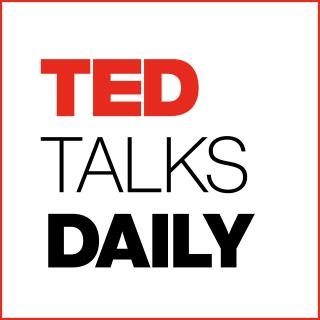
How online abuse of women has spiraled out of control | Ashley Judd
Enough with online hate speech, sexual harassment and threats of violence against women and marginalized groups. It's time to take the global crisis of online abuse seriously. In this searching, powerful talk, Ashley Judd recounts her ongoing experience of being terrorized on social media for her unwavering activism and calls on citizens of the internet, the tech community, law enforcement and legislators to recognize the offline harm of online harassment.For a chance to give your own TED Talk, fill out the Idea Search Application: ted.com/ideasearch.Interested in learning more about upcoming TED events? Follow these links:TEDNext: ted.com/futureyouTEDSports: ted.com/sportsTEDAI Vienna: ted.com/ai-viennaTEDAI San Francisco: ted.com/ai-sf Hosted on Acast. See acast.com/privacy for more information.
18 Tammi 201716min

What happens when you have a disease doctors can't diagnose | Jennifer Brea
Five years ago, TED Fellow Jennifer Brea became progressively ill with myalgic encephalomyelitis, commonly known as chronic fatigue syndrome, a debilitating illness that severely impairs normal activities and on bad days makes even the rustling of bed sheets unbearable. In this poignant talk, Brea describes the obstacles she's encountered in seeking treatment for her condition, whose root causes and physical effects we don't fully understand, as well as her mission to document through film the lives of patients that medicine struggles to treat.For a chance to give your own TED Talk, fill out the Idea Search Application: ted.com/ideasearch.Interested in learning more about upcoming TED events? Follow these links:TEDNext: ted.com/futureyouTEDSports: ted.com/sportsTEDAI Vienna: ted.com/ai-viennaTEDAI San Francisco: ted.com/ai-sf Hosted on Acast. See acast.com/privacy for more information.
17 Tammi 201716min
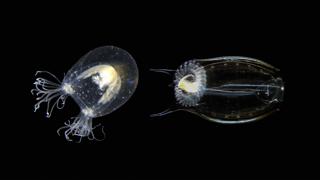
To solve old problems, study new species | Alejandro Sánchez Alvarado
Nature is wonderfully abundant, diverse and mysterious -- but biological research today tends to focus on only seven species, including rats, chickens, fruit flies and us. We're studying an astonishingly narrow sliver of life, says biologist Alejandro Sánchez Alvarado, and hoping it'll be enough to solve the oldest, most challenging problems in science, like cancer. In this visually captivating talk, Alvarado calls on us to interrogate the unknown and shows us the remarkable discoveries that surface when we do.For a chance to give your own TED Talk, fill out the Idea Search Application: ted.com/ideasearch.Interested in learning more about upcoming TED events? Follow these links:TEDNext: ted.com/futureyouTEDSports: ted.com/sportsTEDAI Vienna: ted.com/ai-viennaTEDAI San Francisco: ted.com/ai-sf Hosted on Acast. See acast.com/privacy for more information.
12 Tammi 201712min
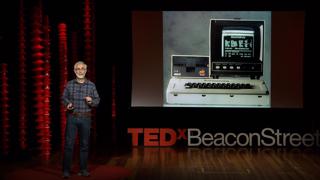
Meet the inventor of the electronic spreadsheet | Dan Bricklin
Dan Bricklin changed the world forever when he codeveloped VisiCalc, the first electronic spreadsheet and grandfather of programs you probably use every day like Microsoft Excel and Google Sheets. Join the software engineer and computing legend as he explores the tangled web of first jobs, daydreams and homework problems that led to his transformational invention.For a chance to give your own TED Talk, fill out the Idea Search Application: ted.com/ideasearch.Interested in learning more about upcoming TED events? Follow these links:TEDNext: ted.com/futureyouTEDSports: ted.com/sportsTEDAI Vienna: ted.com/ai-viennaTEDAI San Francisco: ted.com/ai-sf Hosted on Acast. See acast.com/privacy for more information.
11 Tammi 201712min
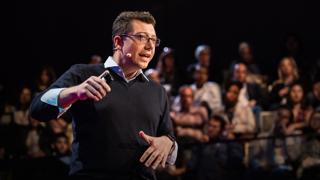
The next step in nanotechnology | George Tulevski
Nearly every other year the transistors that power silicon computer chip shrink in size by half and double in performance, enabling our devices to become more mobile and accessible. But what happens when these components can't get any smaller? George Tulevski researches the unseen and untapped world of nanomaterials. His current work: developing chemical processes to compel billions of carbon nanotubes to assemble themselves into the patterns needed to build circuits, much the same way natural organisms build intricate, diverse and elegant structures. Could they hold the secret to the next generation of computing?For a chance to give your own TED Talk, fill out the Idea Search Application: ted.com/ideasearch.Interested in learning more about upcoming TED events? Follow these links:TEDNext: ted.com/futureyouTEDSports: ted.com/sportsTEDAI Vienna: ted.com/ai-viennaTEDAI San Francisco: ted.com/ai-sf Hosted on Acast. See acast.com/privacy for more information.
10 Tammi 20179min
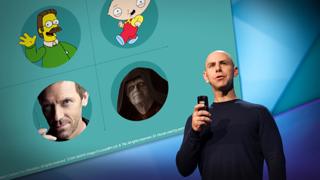
Are you a giver or a taker? | Adam Grant
In every workplace, there are three basic kinds of people: givers, takers and matchers. Organizational psychologist Adam Grant breaks down these personalities and offers simple strategies to promote a culture of generosity and keep self-serving employees from taking more than their share.For a chance to give your own TED Talk, fill out the Idea Search Application: ted.com/ideasearch.Interested in learning more about upcoming TED events? Follow these links:TEDNext: ted.com/futureyouTEDSports: ted.com/sportsTEDAI Vienna: ted.com/ai-viennaTEDAI San Francisco: ted.com/ai-sf Hosted on Acast. See acast.com/privacy for more information.
3 Tammi 201713min
